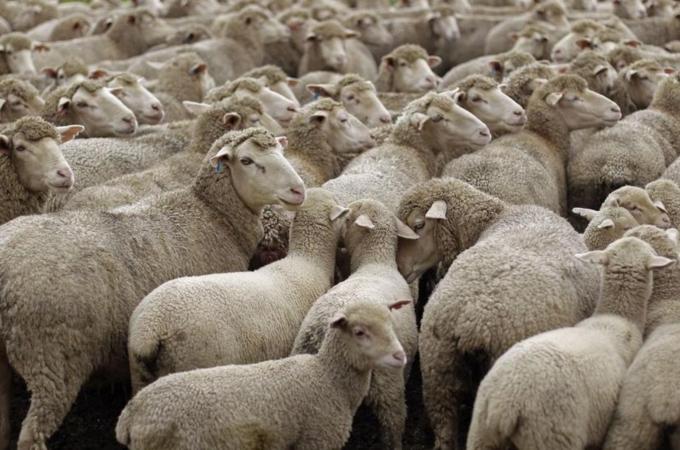
Date: 2025-04-03 Page is: DBtxt003.php txt00003180
Agriculture
Australian Sheep
Australian sheep stranded in the Gulf ... Two vessels carrying more than 70,000 sheep refused permission to dock by Bahrain and Kuwait due to infection fears.
COMMENTARY
I relate to this story. Back in the late 1980s and 1990s I worked a bit in various parts of the Horn of Africa and Middle East. Some of my work was related to economic development and in this connection I tried to learn as much as I could about agriculture in the region.
One little piece of trade in agricultural product was the export of live sheep and goats from (mainly) Ethiopia to Saudi Arabia to supply the huge demand at the end of Ramadhan. I was impressed with the logistics ranging from chartered aircraft to trucks and dhows. I recall being informed about the new bulk live transport chips that Australia was starting to use ... and the issues that would arise when these very large numbers of animals are together in a confined space for a relatively long time.
Part of this article sounds rather typical of modern business. The companies involved are all very happy to make the profit from the trade ... but when something goes wrong, the cost of risk gone wrong gets to be a cost for society and not a cost for the companies involved. This is a norm in the global money profit corporate environment where profits are the priority and everything else really does not matter.
Not at all clear from the reporting who is going to pay the cost of cleaning up this mess, if it turns into a mess.
Peter Burgess
Australian sheep stranded in the Gulf Two vessels carrying more than 70,000 sheep refused permission to dock by Bahrain and Kuwait due to infection fears.

IMAGE Four million sheep every year board massive cargo ships bound for the Middle East [Getty]
Two Australian ships holding thousands of sheep have been rejected from loading in Kuwait and Bahrain and remain at sea.
The Australian ship Ocean Drover, carrying 22,000 sheep, has been blocked from unloading in Bahrain since the end of August.
The sheep have already been on the water for 33 days.
Kuwait has also rejected a shipment exported by the Australian company Emanuel’s on the Kuwaiti ship Al Shuwaikh. About 50,000 sheep are on board the ship that was due to dock a week ago.
There are unconfirmed reports that the carrier is now moving its cargo to shore.
According to the Australian agriculture department, the shipments are both infected with the disease scabby mouth.
After the Cormo Express case, in which more than 5,000 sheep died, Australia signed memoranda of understanding with destination countries that oblige them to accept live exports into feedlots within 36 hours, including into quarantine, if needed.
But the new cases suggest procedures for animal welfare in the live export trade have failed.
Greens Senator Lee Rhiannon says the situation is unacceptable.
'The memorandum of understanding now looks like worthless bits of paper,' she said.
'What they require is for the sheep to be unloaded within 36 hours of docking.'
Source: Agencies